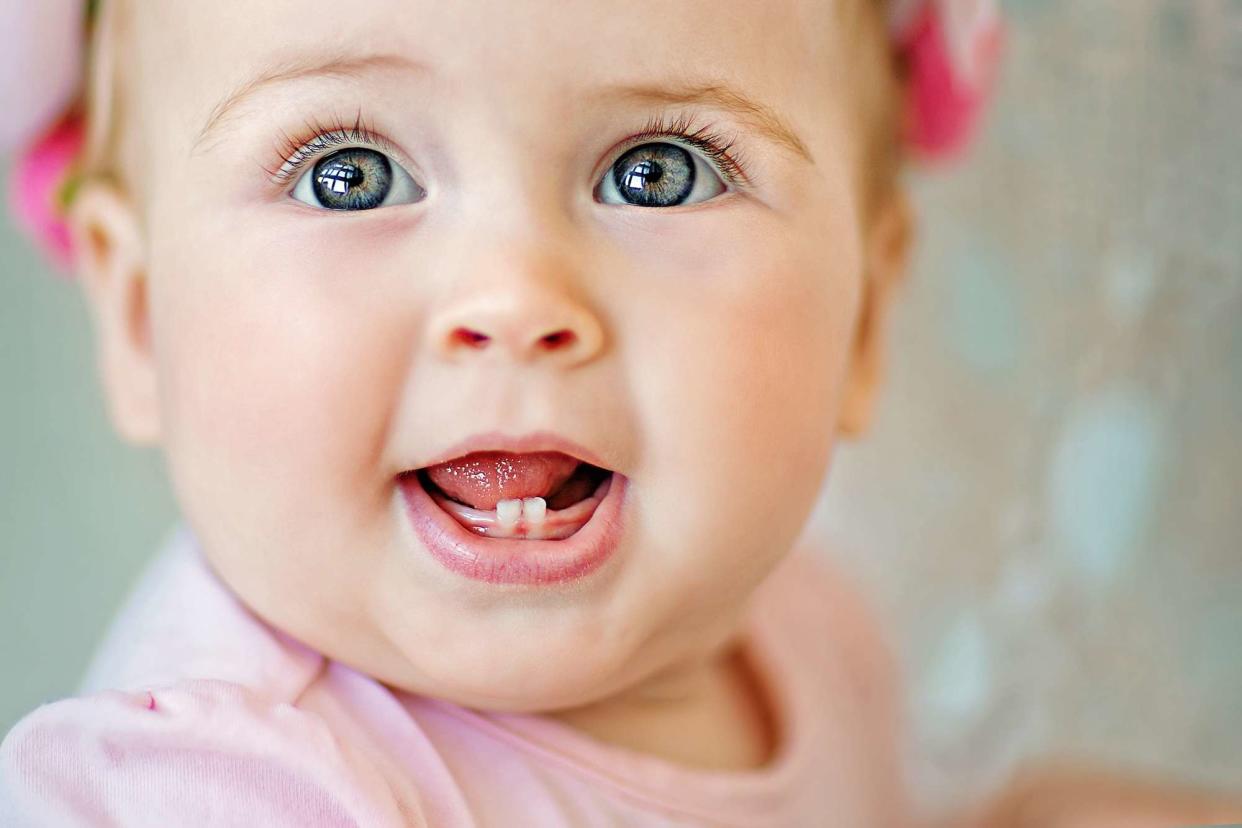How to Clean Baby Teeth

Shutterstock
Even though all primary teeth eventually fall out, it's important to take care of them. Loss or decay of these teeth can deform the mouth, causing problems when the permanent teeth take their place. What's more, your baby will depend on their primary teeth for proper chewing and nutrition, as well as speech and appearance, for many years. Starting regular brushing habits early will also make your child more likely to maintain good dental hygiene in the future. These tips can help you clean baby teeth properly.
Learn the stages of baby teeth.
The first set of teeth erupts when your baby is about 6 months old; they're usually the middle two on the bottom gum. Around 8 months, the middle teeth on the top gum come in. Two teeth on each side of these show up at around 9 to 10 months. Then four teeth erupt every four months, until all 20 are present by age 3. As children differ, so do the way they grow; don't be alarmed if your baby's teeth don't appear in this exact order.
Clean your baby's mouth before their teeth come in.
Before your child's teeth come in, wipe their gums off after each feeding with a warm, wet washcloth or a dampened piece of gauze wrapped around your finger. You can also buy thimble-like, soft rubbery devices (they fit over your index finger) to use for rubbing off excess food.
Master the teeth cleaning process.
Once teeth are visible, the American Academy of Pediatric Dentistry (AAPD) recommends smearing a drop of fluoride toothpaste the size of a grain of rice on a soft-bristled toothbrush with a small head. Use this to clean your baby's teeth twice a day, gradually increasing to a pea-size amount of paste. Nighttime brushing is most important for avoiding cavities. To prevent your child from ingesting too much fluoride, which leads to a condition called fluorosis, wipe out any residue while brushing. When your baby's teeth touch each other, it's time to start flossing them.
Plan for the first dental visit.
The AAPD recommends scheduling an appointment when the first tooth appears or no later than your child's first birthday. Pediatric dentists can detect early tooth decay and give information on proper oral and facial development. Schedule appointments during the time of day when your child is most alert.
RELATED: How to Manage the Teething Stage
Notice when there's a problem.
Tooth decay can occur as a result of constant exposure to natural sugar in breast milk or formula. The first signs are usually white spots on the gum line of the upper front teeth. Eventually, a cavity will form, characterized by discoloration and minor pitting. If you notice any of these symptoms, be sure to check with your child's dentist right away to come up with a treatment plan.
Avoid baby bottle tooth decay.
Another important part of good dental hygiene is preventing a disease commonly called baby-bottle mouth, which can lead to the loss of primary teeth. It usually develops in babies who are routinely put to bed with bottles of milk (or worse, juice), and it's notorious for causing cavities. Never leave your infant with a bottle for long periods of time, especially if you notice they're no longer feeding and are just using the bottle for comfort. If they must have a bedtime bottle to relax, fill it with plain water.
Source: Dionne J. Finlay, D.D.S., a dentist in New York City and a diplomate of the American Board of Pediatric Dentistry

